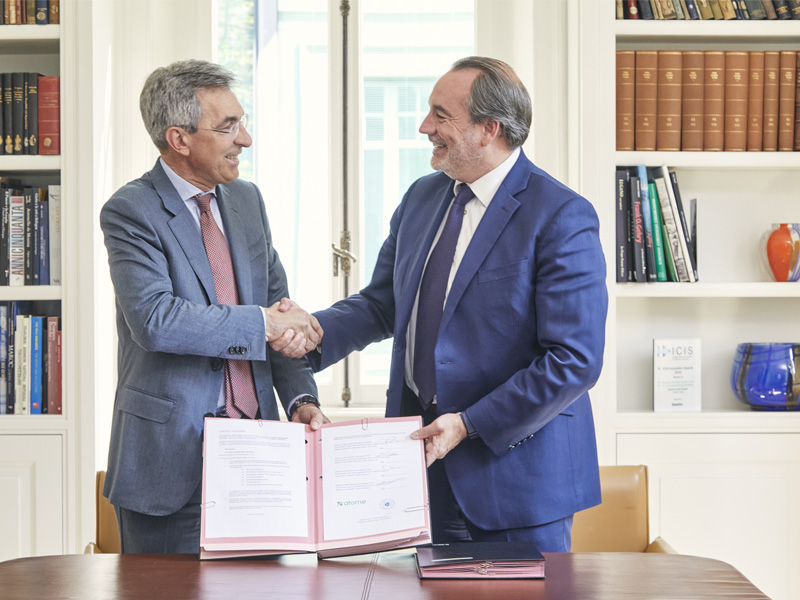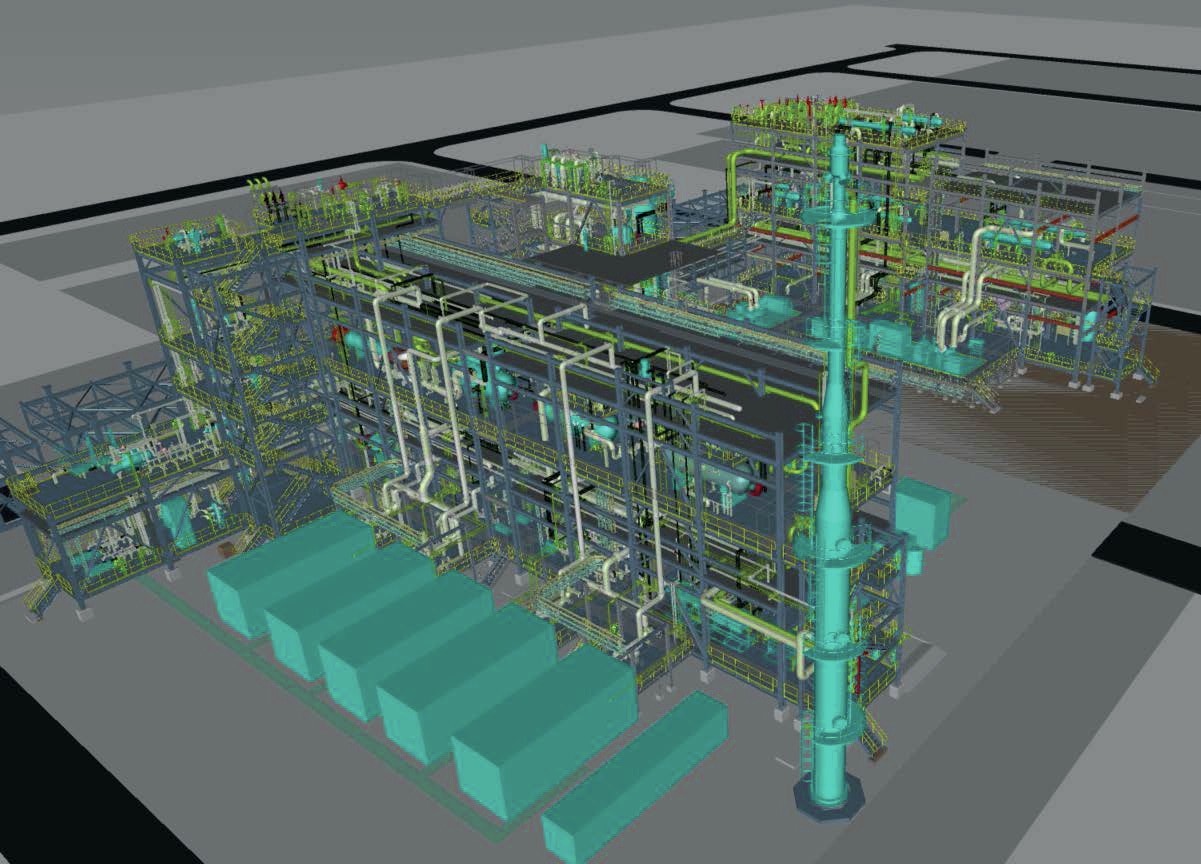Nitrogen+Syngas
24 January 2025
Press Release: Johnson Matthey technology
Johnson Matthey technology selected for one of the largest planned e-methanol plants in Europe
- Reolum project represents the fifth win contributing to JM’s strategic milestone of 20 sustainable technologies project wins by the end of 2025/26
- JM has won 15 major energy transition projects since 1st April 2022
- Sustainable energy project to operate in region formerly known for power plant and coal mining
Johnson Matthey’s (JM) e-methanol technology has been selected by Reolum for the next phase of its La Robla Nueva Energia (NE) project. Located in the Spanish region of Castilla y León, it will be one of the largest e-methanol production plants in Europe, planned to be online by the end of 2027.
The facility will be one half of an integrated green energy generation project called La Robla Green. This project is made up of two cutting-edge facilities: Roblum, a green energy generation plant that will power more than 50,000 households – and La Robla NE, an e-methanol plant. La Robla NE blends the CO₂ extracted from the biomass plant with green hydrogen to produce e-methanol, with the expectation of up to 140 kt/year.
For JM’s Catalyst Technologies business, the Reolum project represents the fifth win since 1st April 2024 contributing to JM’s strategic milestone of 20 sustainable technologies project wins by the end of 2025/26. Together with previously announced wins, including ETFuels’ planned methanol plant in Texas announced in December 2024, JM has won 15 major energy transition projects since 1st April 2022. JM continues to win complex and ground-breaking energy transition projects providing the critical technology and licensing that enables our customers to power the energy transition.
E-methanol is an increasingly important product in decarbonising two hard to abate sectors – the chemicals industry and heavy transport, like shipping. The project is supported by the European Investment Bank and a Final Investment Decision is expected in 2025. Reolum is a Spanish firm specialising in the development of projects aimed at driving the energy transition and achieving decarbonisation. The company focuses on the development of green hydrogen, e-methanol, and biomass-fuelled combined heat and power technologies.
Reolum has selected JM’s eMERALD™ technology – a process that converts captured CO₂ to methanol – for the project, which contributes to the regeneration of an area in northern Spain, previously home to a thermal power plant and a once-thriving coal mining industry. This region has been designated as part of Spain’s “Just Transition Zones,” an initiative aligned with the European Union’s Just Transition Mechanism to support communities transitioning towards a low-carbon economy, while addressing the socio-economic challenges of decarbonisation.
JM’s e-methanol eMERALD technology has been proven as a credible route to decarbonise methanol production since 2011. Our reliable and low-risk process has been optimised to achieve significant hydrogen and carbon uptake to fully utilise these highly valuable feedstocks, whilst also minimising the overall energy requirements and operating costs.
Alberto Giovanzana, Managing Director, Catalyst Technologies Licencing, said: “Johnson Matthey’s technology is leading the way in how heavy industries will be able to decarbonise in the coming years. Our eMERALD process and catalyst efficiently convert renewable resources into e-methanol.
“We’re delighted to hit another of our milestones, working alongside Reolum on a transformational project for the region.”
Yann Dumont CEO, Reolum, said: “This project represents the implementation of innovative business models that are at the core of Reolum’s mission. For this reason, we have been extremely meticulous in selecting our partners. We are very pleased to collaborate with a leading company like Johnson Matthey and firmly believe that we are setting a milestone in decarbonisation.”
About Johnson Matthey
JM’s e-methanol and biomethanol processes have the potential to deliver between 35-39% reduction in global warming potential compared to an SMR benchmark using the IPCC GWP100 methodology, and the potential of up to 185% reduction for biomethanol and 143% for e-methanol versus the same SMR benchmark when using GWP100 (incl. CO2 uptake). For further details, please see our Methanol technology lifecycle analysis page.
Johnson Matthey is a global leader in sustainable technologies. For over 200 years we’ve used advanced metals chemistry to tackle the world’s biggest challenges.
Many of the world’s leading energy, chemicals and automotive companies depend on our technology and expertise to decarbonise, reduce harmful emissions and improve their sustainability.
And now, as the world faces the challenges of climate change, energy supply and resource scarcity, we’re actively providing solutions for our customers. Through inspiring science and continued innovation, we’re catalysing the net zero transition for millions of people every day. For more information visit www.matthey.com.
About Reolum
Reolum conceives and develops innovative projects to drive decarbonization and advance the energy transition. Its activities range from renewable energy generation, green hydrogen, and green e-methanol production to CO₂ capture, as well as biomass-based cogeneration of electricity and heat, and biomass supply. Reolum promotes the sustainable use of biomass, supporting individuals and businesses in reducing their carbon footprint and optimising energy consumption.
For media enquiries
Email: jmpr@matthey.com
Telephone: +44 207 269 8001






